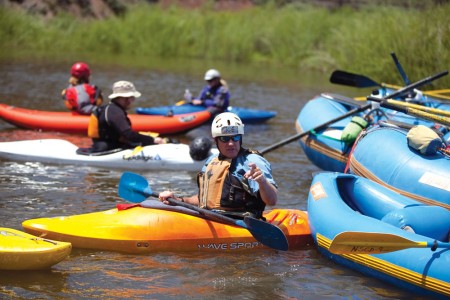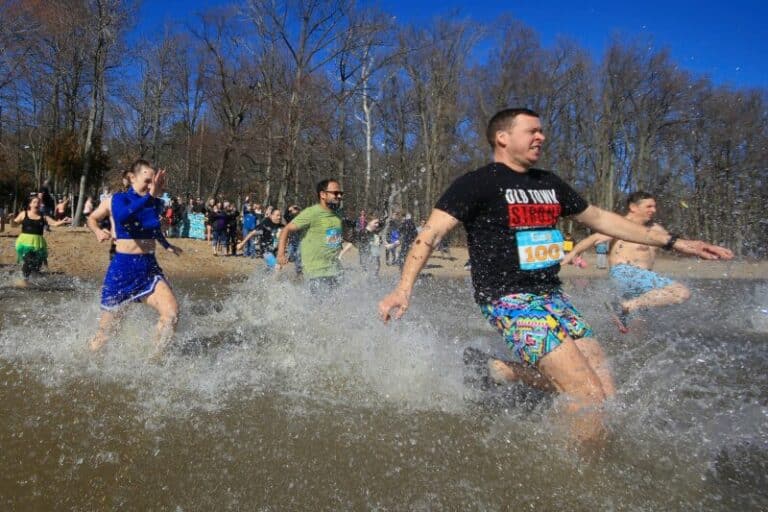Joe Mornini Helps Wounded Veterans Learn to Kayak
Six years ago, D.C.-area paddler Joe Mornini wanted to help wounded veterans coming home from combat in Iraq and Afghanistan rehabilitate their bodies and minds. In his free time, he started hosting kayaking clinics in pools at Walter Reed Army Medical Center. Now Mornini’s nonprofit Team River Runner (teamriverrunner.org) has expanded across the country and includes taking disabled vets on paddling trips across North America. With minimal staff and a day job as a teacher, Mornini has focused on sustainable growth—letting vets in the program become instructors. Here are Mornini’s thoughts on the growth and inspiration of Team River Runner.
My Cause
The main purpose is still to take wounded warriors out kayaking, but we’ve become more expansive. We have 25 chapters across the country. Now veterans who have gone through the program are taking leadership roles, becoming instructors, and starting their own chapters. One of our main missions is to get the veterans to own the programs themselves. We decided it was the best way for them to continue paddling when they leave Walter Reed. When they become leaders, this organization can grow on its own, and paddling remains part of their lifestyle.
Paddling Progress
We’ve learned so much about the therapeutic potential of kayaking over the past six years. Paddling is a state-of-the-art therapy for veterans with traumatic brain injury and post-traumatic stress disorder. There’s also now a huge amount of work being done to create adaptive boats and equipment, so more disabled veterans can get into kayaking. The Veterans Administration has now added kayaking to its summer sports clinic. We’ve also recently added a program that takes blind veterans whitewater kayaking.
A Leveling Experience
Spending time on the water offers a chance to break a negative cycle, especially for people having problems re-entering the world after multiple deployments. Paddling works because it is a leveling experience. The other day I was on the Potomac River with four disabled veterans. One was injured by an explosive device, another was blind, another was missing a leg, and the last one had to have her boat carried to the put-in because she walks with arm braces. We ran into another boater on the water, and when I told him he was just passed by four people in my program, he didn’t believe me. That speaks volumes to the power of paddling. These veterans are not as disabled as they were before they got in boats. They’re able to reconnect physically, socially, and emotionally.
Man On The Move
After I finish teaching each day, I’m either on the water with the vets or somewhere giving a presentation on the program. This summer, I took 10 disabled vets down the Grand Canyon. While I was gone, the program was run by a vet from Walter Reed. That’s what it’s all about.








